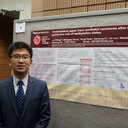Pharmacological basis for the medicinal use of muskmelon base (Pedicellus Melo.) for abdominal distention and constipation.
Ključne riječi
Sažetak
BACKGROUND
Muskmelon base (Pedicellus Melo.) has a long history (Ming Dynasty) as a Chinese traditional medicine. According to traditional use, it was prepared as rectal suppositories for treating abdominal distention and constipation. The present study was carried out on the pharmacological basis for the medicinal use of muskmelon base.
OBJECTIVE
The objective of this study was to determine the pharmacological basis for the medicinal use of the ethanol extract from muskmelon base (EMB) for abdominal distention and constipation.
METHODS
In this study, we report the gastrointestinal prokinetic action of EMB following single rectal or large intestinal administration. Laxative activity, gastric emptying and small intestinal transit tests were examined in ICR mice. SD rats were used to determine changes in large intestinal transit and contractile effects of the proximal colon in vivo. Guinea pigs were used to evaluate the contractile effects of the proximal colon and the possible mechanism or mechanisms on proximal colon activity ex vivo. Moreover, the acute toxicity of EMB was evaluated.
RESULTS
In the in vivo experiments, the acute toxicity test showed that the maximum tolerated dose (MTD) of EMB was 400 mg/kg. A laxative effect was observed in mice at different dosages (6.5, 13 and 26 mg/kg). EMB showed a dose-dependent acceleration of gastric emptying (13 and 26 mg/kg). It also promoted both small intestinal (6.5, 13 and 26 mg/kg) and large intestinal (4, 8 and 16 mg/kg) transit activity. In the SD rat model, single rectal administration of EMB (8 and 16 mg/kg) showed a significant increase in both the frequency and amplitude of proximal colon smooth muscle contractility. These increases in amplitude and frequency peaked 30-60 min after EMB administration and corresponded with the results of the laxative activity test. The ex vivo experiments showed that varying doses of EMB (11.5, 23 and 46 mg/kg) had a direct prokinetic effect that was sensitive to atropine.
CONCLUSIONS
Our results show that EMB is a low dosage, fast acting drug with a large therapeutic window (4-400 mg/kg) and shows significant gastrointestinal prokinetic action after single rectal or large intestinal administration. This gastrointestinal prokinetic effect was stronger in the intestines than in the stomach. This effect was sensitive to atropine, suggesting that EMB acts mainly through cholinergic mechanisms.





